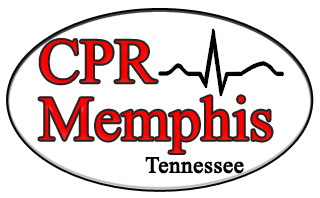Benign prostatic hypertrophy or BPH is a noncancerous enlargement of the prostate gland. The prostate gland is a gland in the male body that provides milky secretions for the sperm to swim in. The urethra also runs through the prostate gland. When a male suffers from BPH the urethra that is inside the prostate gland is pressed on, making urination difficult. Below are nine things that people should know about BPH.
- The terms benign prostatic hypertrophy and benign prostatic hyperplasia are used interchangeably. However the true definitions of these words are different. Hypertrophy is a growth of the cells in the prostate while hyperplasia is a production of new cells in the prostate.
- The symptoms of benign prostatic hypertrophy include trouble starting or stopping urination, a weak urine stream, a feeling your bladder isn’t empty even after urinating, inability to urinate, incontinence, needing to urinate two or more times a night, pain while urinating, blood in the urine, straining to urinate, urinary frequency, and a strong and sudden urge to urinate.
- Men with mild benign prostatic hypertrophy can do multiple things to help to not worsen the symptoms including, not delaying urinating once they feel the urge, emptying the bladder completely, avoiding alcohol and caffeine, especially after dinner, not drinking a lot of liquids at once, especially close to bedtime, avoiding antihistamines or decongestants including nasal sprays, keeping warm, exercising regularly, performing kegel exercises, reducing stress, practicing “double voiding” which means urinate as much as you can and then urinate again, not rushing urination, and drinking cranberry juice.
- There are many medications that can be used to treat moderate to severe benign prostatic hypertrophy including alpha 1-blockers (these relax the muscles of the bladder and prostate), finasteride and dutasteride (these reduce the size of the prostate gland, increase urine flow rate and decrease symptoms of benign prostatic hypertrophy), antibiotics (treats chronic prostatitis which can accompany BPH), or a combination of these.
- There are many surgeries and procedures that can be used to treat moderate to severe benign prostatic hypertrophy.
- The exams and tests that doctors use to diagnose benign prostatic hypertrophy include talking to the patient about his signs and symptoms, a urine test (checks for blood or infection), a digital rectal exam (where the doctors gloved lubricated finger is placed up the rectum to feel the prostate for inflammation, enlargement, or cancer), a blood test, a urine flow rate test, a post-void residual urine test (determines how much urine is left in the bladder after urination), urine pressure flow studies, prostate-specific antigen (PSA) blood test to screen for prostate cancer, and cystoscopy.
- Benign prostatic hypertrophy does not mean prostate cancer. It does not increase your chances of developing prostate cancer. In fact, you can have prostate cancer and BPH at the same time.
- Men as they age are at a risk for developing benign prostatic hypertrophy. A few men over the age of 40 have BPH as compared to ninety percent of men over the age of 80. However, men without normal functioning testicles do not develop BPH.
- Depending on the risk of prostate cancer men should have an initial digital rectal exam between the ages of forty and fifty. After the initial exam, an exam should be performed annually. This will also allow the doctor to determine if the man has benign prostatic hypertrophy.
Benign prostatic hypertrophy or BPH is an enlargement of the prostate gland. The nine things people should know about BPH are the differences and similarities in benign prostatic hypertrophy and benign prostatic hyperplasia, the many symptoms, the remedies to help lessen the symptoms, the many medications, the surgeries, the exams and tests used in diagnosis, it does not mean prostate cancer, it is very common, and when men should have digital rectal exams.





